Minty Customer Success
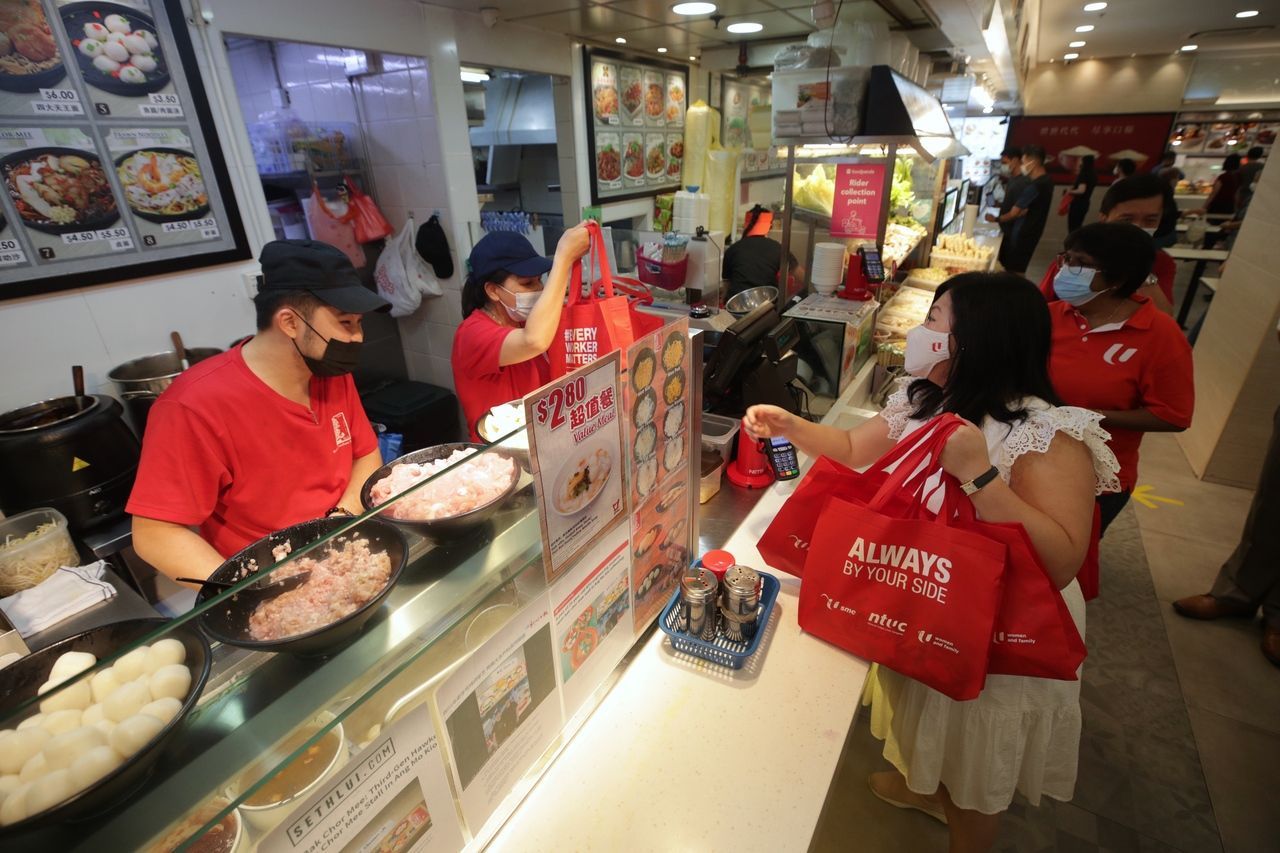
Ask any F&B owner what keeps them up at night, and manpower will almost always be at the top of the list. While customers see food, ambience, and service, operators deal daily with staff shortages, high turnover, rising labour costs, and the constant pressure to maintain service standards with limited headcount. In today’s F&B landscape, manpower is no longer just an operational issue—it is a strategic one. High Turnover Is the Norm, Not the Exception Unlike many industries, high staff turnover is an accepted reality in F&B. Part-time workers come and go, full-time staff leave for better hours or pay, and seasonal fluctuations add further instability. Each resignation means new recruitment, retraining, and a temporary drop in efficiency. Over time, this revolving door quietly increases costs and drains management attention, even if salaries remain unchanged. Labour Costs Keep Rising, Margins Do Not Wages, levies, and benefits have steadily increased, while menu prices cannot be raised endlessly without losing customers. Many F&B operators find themselves squeezed between rising labour costs and razor-thin margins. Hiring more staff to improve service often worsens profitability, yet running lean risks burnout and inconsistent customer experiences. This tension is now one of the biggest structural challenges in the industry. Training Time Is a Hidden Cost Training is often underestimated. Every new hire requires time—time from supervisors, time away from peak operations, and time before the staff member becomes productive. When turnover is high, training never truly ends. This is especially challenging during peak periods, where untrained staff slow down operations and increase mistakes, directly affecting customer satisfaction. Skill Gaps and Inconsistent Service Not all staff arrive with the same skill level or experience. Some require extensive guidance to use POS systems, handle payments, or follow service workflows. Inconsistent skills lead to inconsistent service, which customers notice immediately. For brands trying to build loyalty, this inconsistency can be more damaging than a slightly higher price point. Burnout and Morale Issues When teams are understaffed, existing employees often shoulder the extra workload. Longer hours, faster pace, and fewer breaks lead to burnout, mistakes, and eventually resignation—fueling the turnover cycle once again. Low morale also affects service quality, creating a negative feedback loop that impacts both staff retention and customer experience. Scheduling Complexity and Peak-Hour Pressure F&B manpower demand is uneven. Lunch and dinner rushes, weekends, and promotions require significantly more staff than off-peak hours. Poor scheduling leads to either overstaffing (higher costs) or understaffing (slower service and frustrated customers). Managing this balance manually becomes increasingly difficult as the business grows. Why Manpower Problems Can’t Be Solved by Hiring Alone Many operators initially respond to manpower challenges by hiring more people. In reality, this often treats the symptom rather than the root problem. Without efficient workflows, clear processes, and supportive systems, adding staff increases complexity without meaningfully improving performance. Sustainable solutions require reducing dependency on manpower, not just increasing headcount. Rethinking Manpower Through Systems and Processes Forward-looking F&B businesses focus on simplifying operations so fewer people can do more, with less stress. Clear SOPs, intuitive interfaces, and well-designed workflows reduce training time and mistakes. Technology, when implemented correctly, helps staff work faster and more confidently rather than replacing human service altogether. Turning a Challenge into a Competitive Advantage F&B brands that manage manpower well gain a powerful edge. Lower turnover means better-trained staff. Simpler operations mean faster service. Happier employees create better customer experiences. In an industry where many struggle with the same issues, strong manpower management can be the difference between survival and sustainable growth. Manpower challenges in F&B are not going away. Labour shortages, rising costs, and changing workforce expectations are now part of the operating environment. The most resilient F&B businesses are not those with the most staff, but those with the best systems, processes, and workflows to support the staff they have . If you are interested in F&B solution that helps you rely less heavily on manpower by streamlining solutions, click here to get in touch with us!

Singapore’s F&B industry is fast-paced and unforgiving. Rising rents, manpower shortages, and changing consumer habits leave owners scrambling for solutions. The good news? AI (Artificial Intelligence) offers practical, immediate benefits to help F&B operators not only survive but thrive. Here’s why AI is quickly becoming a must-have in restaurants, cafés, and takeaway outlets. 1. AI Chatbots: Serve Customers Faster Forget long waiting times for customer responses. AI chatbots answer booking requests, menu questions, and delivery queries instantly — on WhatsApp, websites, or even kiosks. This frees up staff for service where it matters most. 2. Personalized Promotions: Target Smarter, Spend Less AI studies customer history to offer relevant eVouchers and discounts. Instead of blasting one-size-fits-all promos, you reach the right person with the right offer. This reduces wasted discounts while boosting redemption rates. 3. Dynamic Pricing: Maximize Every Seat Quiet afternoons? Offer discounted bundles. Fully booked weekends? Price premium dishes higher. AI-driven dynamic pricing adapts in real time, ensuring you’re maximizing profit potential across different scenarios. 4. Upsell & Cross Sell: Increase Every Bill When customers order, AI suggests logical add-ons: desserts, drinks, or sides. These small prompts add up, raising average order size without pushing extra work on staff. 5. Smarter Loyalty Programs: Win Customers Back AI doesn’t just reward loyal customers. it predicts when someone is about to stop visiting and re-engages them. For example, sending a “We miss you” voucher after two months of no visits. 6. Revenue Forecasting: Take the Guesswork Out AI crunches data to forecast demand. That means you know which day will be busiest, how much stock to prepare, and when to roster staff. This helps reduce waste and labor costs. 7. Profitability Analysis: Focus on Margins AI identifies which dishes are most profitable and which are dragging you down. Promoting high-margin items can lift profitability significantly without changing your customer base. 8. Fraud Detection: Spot Issues Before They Spread Whether it’s suspicious voids or misuse of discounts, AI can alert you to unusual activity across outlets. This strengthens financial control, especially for chains with multiple branches. 9. Menu Engineering: Data-Backed Decisions AI breaks down your menu into categories like “stars” and “dogs,” showing which dishes should be highlighted or removed. No more relying on gut feeling — decisions are guided by hard data. 10. Customer Taste Prediction: Innovate Safely Instead of guessing what customers might like, AI analyzes ordering patterns to suggest new dishes they’re likely to try. This lowers the risk of failed launches and makes innovation more strategic. 11. Trend Tracking: Anticipate What’s Next Food trends change fast. AI scans social platforms and reviews to detect what’s trending — whether it’s plant-based meals or specific flavors. Being early helps you stand out from the competition. Conclusion AI is able to give F&B businesses like you a competitive advantage for F&B businesses in Singapore. From growing bill sizes to protecting against fraud, AI gives you actionable insights to improve every part of your business.
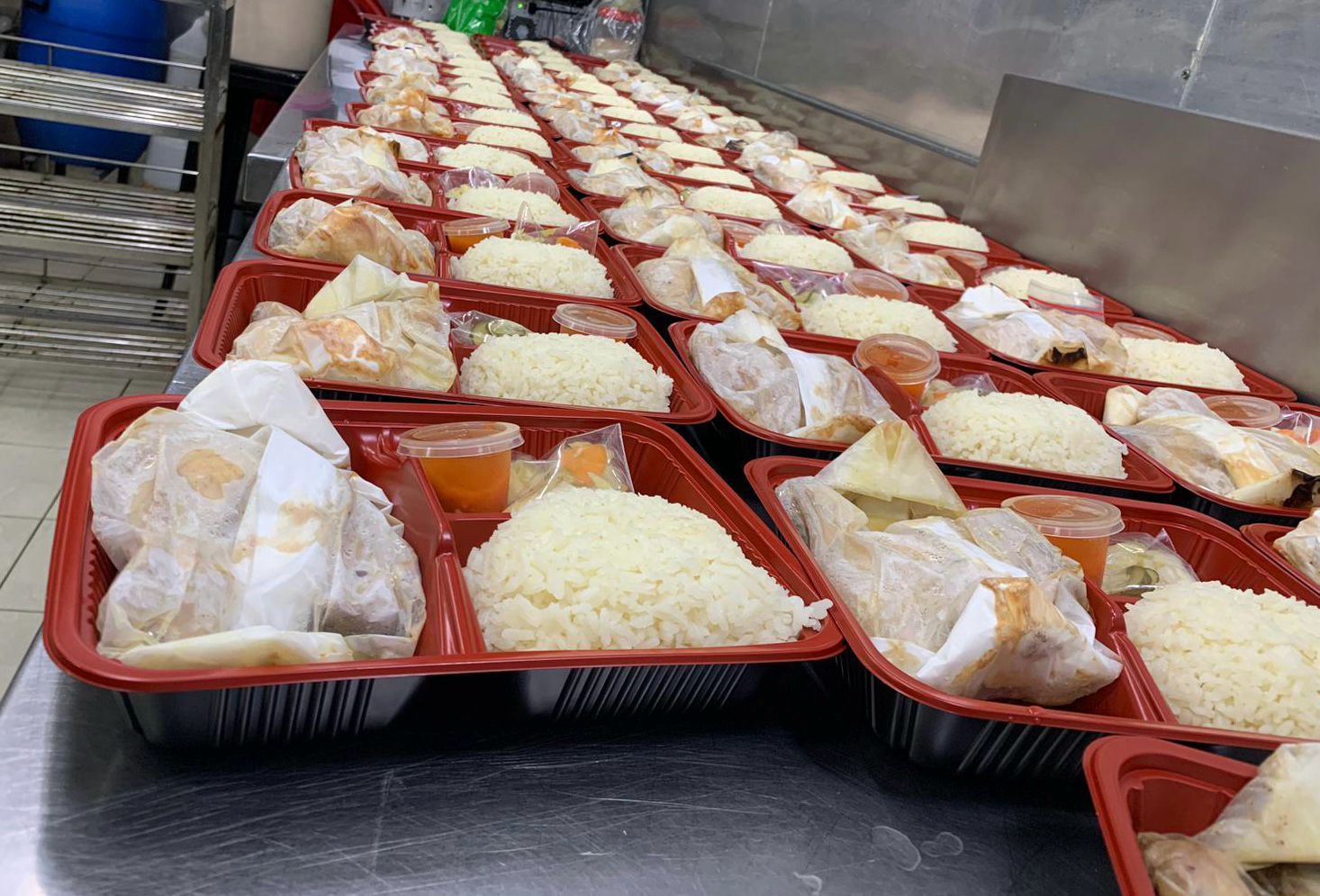
Imagine receiving a $500 catering order. Your team works tirelessly, sourcing fresh ingredients and preparing trays of food. But when the collection time comes, no one shows up and no payment was ever made. Unfortunately, this nightmare scenario happnes in Singapore’s F&B industry. Fake bulk orders are more than just a prank they have serious impacts on your F&B business. Why Fake Orders Are Dangerous Drain on Resources Fake bulk orders consume valuable ingredients, packaging, and prep time. The loss isn’t just the food — it’s the hours of staff effort that could have been spent serving real customers. Direct Financial Losses A large fake order can amount to hundreds of dollars of wasted food. For small operators, one incident can wipe out days of profit. Over time, repeated cases can cripple a business. Missed Opportunities While preparing a fake bulk order, the kitchen may reject real customers or compromise on their service quality. These lost opportunities are often harder to quantify but just as damaging. Staff Morale Impact It’s demoralizing for employees to see their hard work wasted. Chefs and service staff lose motivation when fraudsters exploit the system, especially if incidents happen repeatedly. Practical Steps to Protect Your Business Require Deposits Set a policy where orders above a certain amount (e.g., $100 or more) require a deposit or full payment. This simple barrier eliminates most pranksters. Use Online Ordering with Payment Integration Adopt a system that collects payment before order confirmation . Customers can browse, order, and pay instantly — ensuring your kitchen only works on real orders. Verify Unusual Orders If an order seems unusually large or urgent, confirm details by calling the customer or requesting ID verification. A few minutes of due diligence can save hundreds in losses. Block Repeat Offenders Track suspicious numbers and repeat no-shows. Modern POS and CRM systems make it easy to identify patterns and flag bad actors. How MEGAPOS Helps MEGAPOS Online Ordering was designed with these challenges in mind. By requiring upfront online payment , merchants eliminate the risk of cooking for fake orders. Every order flows seamlessly from the customer to the POS and into the kitchen. Benefits include: No more unpaid bulk orders Guaranteed revenue collection Efficient kitchen operations Staff focus on genuine customers Final Word Fake bulk orders aren’t just an inconvenience they’re a serious threat that wastes ingredients and cost as well as de-moralizes staff in Singapore’s F&B industry. The solution isn’t to hope for better customers, but to adopt better systems. With MEGAPOS Online Ordering, every order is real, paid, and worth your team’s effort. Contact us to discover how MEGAPOS keeps your F&B business protected by clicking here

T urning diners into loyal promoters is the best way to get new customers. Arguably even better than social media marketing. Referral marketing is one of the most cost-effective ways to grow your profits while building a strong community around your brand. Why Referrals Work Referrals work because they rely on trust and personal recommendations , which are far more persuasive than traditional advertising. Customers who come via referrals are already pre-disposed to like your brand—they’re more likely to return, spend more, and even become repeat advocates themselves. Advantages of Referral Marketing: Cost-Efficient Growth Traditional advertising can be expensive, especially for small F&B businesses. Referral marketing leverages your existing customers as promoters, drastically reducing your marketing spend. Each happy customer essentially becomes a free marketing channel. Stronger Retention Referred customers already have a level of trust in your brand. This makes them more likely to come back multiple times , try new menu items, and participate in loyalty programs. Brand Advocacy and Credibility Word-of-mouth is the ultimate credibility booster. When someone recommends your restaurant, it positions your brand as trustworthy and reliable. This is particularly valuable in the F&B industry, where trust and reviews influence customer decisions heavily. Exponential Reach Each customer has multiple friends, family members, and colleagues. A well-designed referral program can turn a single loyal customer into a network of potential repeat customers , multiplying your growth opportunities. How to Implement a Referral Program Incentivize Sharing Offer tangible rewards such as discounts, free menu items, or loyalty points for successful referrals. For example: “Refer a friend and get 10% off your next visit” “Your friend gets 10% off their first order, and you earn loyalty points” Incentives motivate participation while also ensuring the reward is tied to actual customer acquisition. Digital-Friendly Tools QR codes, mobile apps, and social media sharing links make referrals effortless. You can integrate these directly into your ordering system, e-wallet, or loyalty app to track successful referrals automatically . Personalized Messaging Generic messages are easy to ignore. Craft personalized invitations like: “Hi Sarah, invite a friend and both of you enjoy a free dessert on your next visit!” Personalization improves engagement and encourages customers to actively participate. Create Shareable Experiences The more memorable the experience, the more likely customers are to share it. Think visually stunning dishes, unique beverages, cozy interiors, or excellent customer service. Encourage sharing by adding Instagram or TikTok handles on receipts or table displays. Leverage Existing Loyalty Programs Combine referral programs with your existing loyalty system. For instance, customers can earn double points when they refer a friend , providing an added layer of incentive. Track and Optimize To ensure your referral program is effective, monitor: Number of new customers acquired through referrals Repeat visits and average spend of referred customers Engagement rates with referral campaigns (QR scans, app shares, clicks) Adjust your program based on insights. For example, if digital referrals outperform physical coupons, invest more in mobile-friendly solutions. Takeaway Referral marketing isn’t just a promotional tool—it’s a profit accelerator . By rewarding loyal customers, making sharing easy, and creating memorable experiences, your F&B business can enjoy sustainable growth, stronger customer loyalty, and higher revenue . If you are looking for F&B solutions like POS systems, QR ordering, self ordering kiosks and a CRM that helps you manage referral programmes, click here to find out more
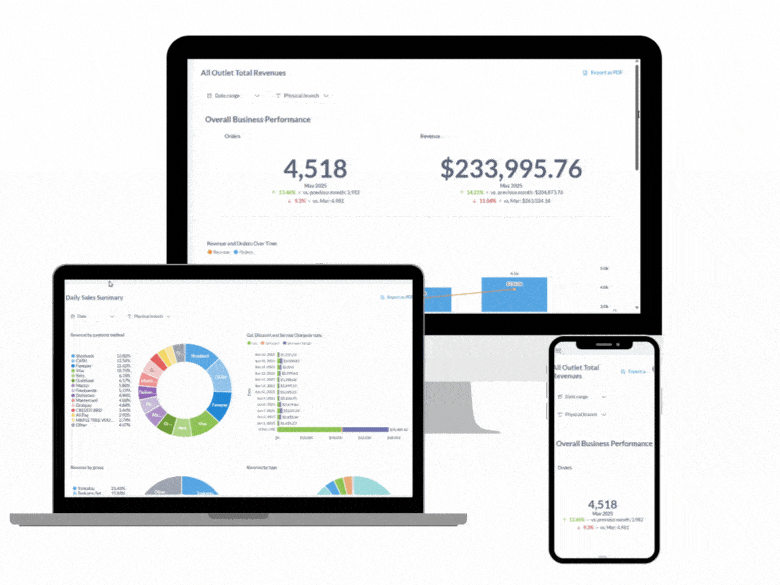
Minty’s online backend has just received a powerful upgrade designed to give F&B business owners like you unprecedented visibility into performance across every outlet. With our new reports and interactive dashboards , you can: Instantly compare past vs present performance across key areas of your business Drill down into operations to identify bottlenecks and optimize resources Access real-time insights from any device — mobile, tablet, or desktop No more struggling with raw spreadsheets or delayed reporting. Our dashboards are intuitive, interactive, and built for busy operators who need clarity at a glance. Think of it as having your F&B business newsfeed, available anytime, anywhere — helping you make smarter decisions that lead to higher profits. Ready to put data to work for your business? Click here to learn more.

One of the biggest challenges of running an F&B business in Singapore apart from high rental and manpower is keeping customers engaged so they return again and again. Many businesses rely on email marketing , but let’s be honest — most emails end up ignored, unopened, or worse, lost in spam folders. That’s where WhatsApp marketing changes the game. Higher Engagement and Open Rates Unlike emails, WhatsApp messages land directly in your customer’s phone inbox, where they are far more likely to be opened. Studies show WhatsApp open rates can reach 90%+, compared to just 20–30% for email. That means your promos, loyalty offers, and updates actually get seen. Personalized, Targeted Campaigns With Minty’s WhatsApp integration, you can broadcast messages to specific member groups. Some examples include: 🔄 Re-engagement campaigns : Win back customers who haven’t visited in a while. ⭐ Regular engagement messages : Keep your brand top-of-mind with loyal diners. 🎁 Promotions & eVoucher notifications : Drive redemptions and boost sales. 📦 Order status updates : Keep customers informed when they order online. Stronger Customer Loyalty Email often feels one-way and impersonal, but WhatsApp is conversational by nature. By using it to share timely, relevant content, you create a stronger connection with your members and increase the likelihood of repeat visits. A Smarter Choice for F&B Growth In today’s competitive F&B scene, relying solely on email campaigns is no longer enough. WhatsApp marketing offers higher visibility, better engagement, and measurable results — making it the smarter way to grow customer loyalty and revenue. Want to see how Minty’s WhatsApp integration can keep your customers coming back? Click here to learn more.
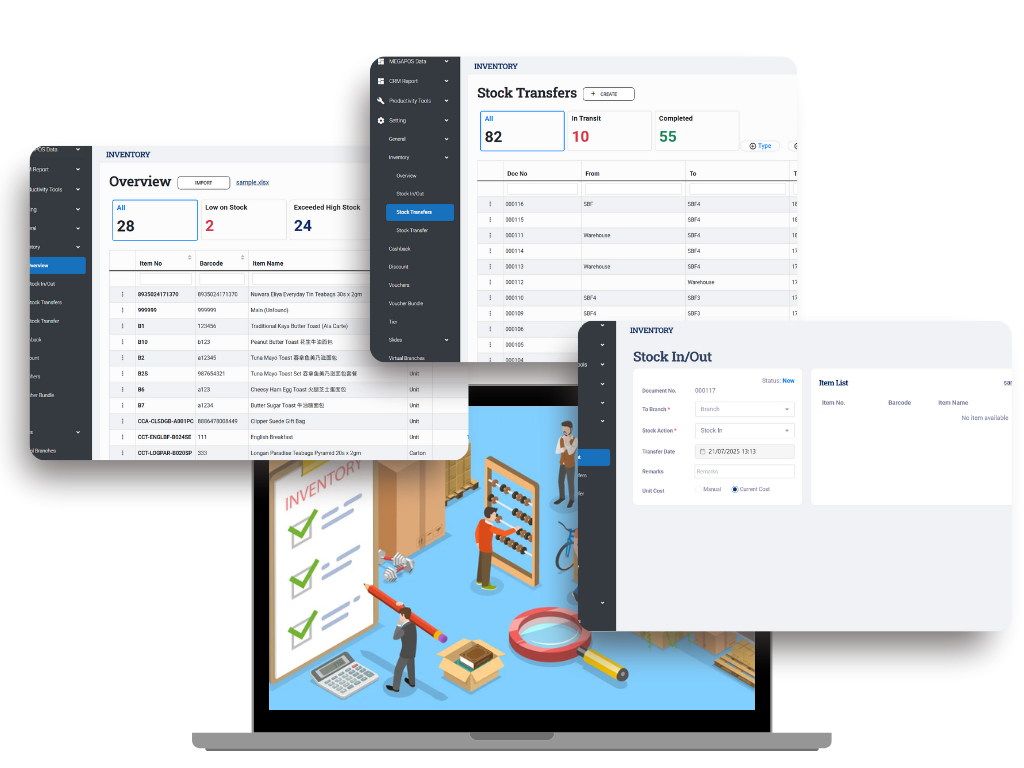
Still Using Spreadsheets for Inventory? Manual tracking is slow and prone to errors. Let MEGAPOS do the heavy lifting. With our smart inventory management , just key in your stock ins, outs, or transfers, and we’ll auto-manage the rest . ✅ Real-time stock deductions & refund return to stock ✅ Multi-outlet syncing & stock transafers ✅ Fast, fuss-free stocktaking What's more, you can manage all these without being in front of your POS through the online backend portal. Say goodbye to tedious inventory tallying. Focus on growing your business, while MEGAPOS keeps your inventory in check.
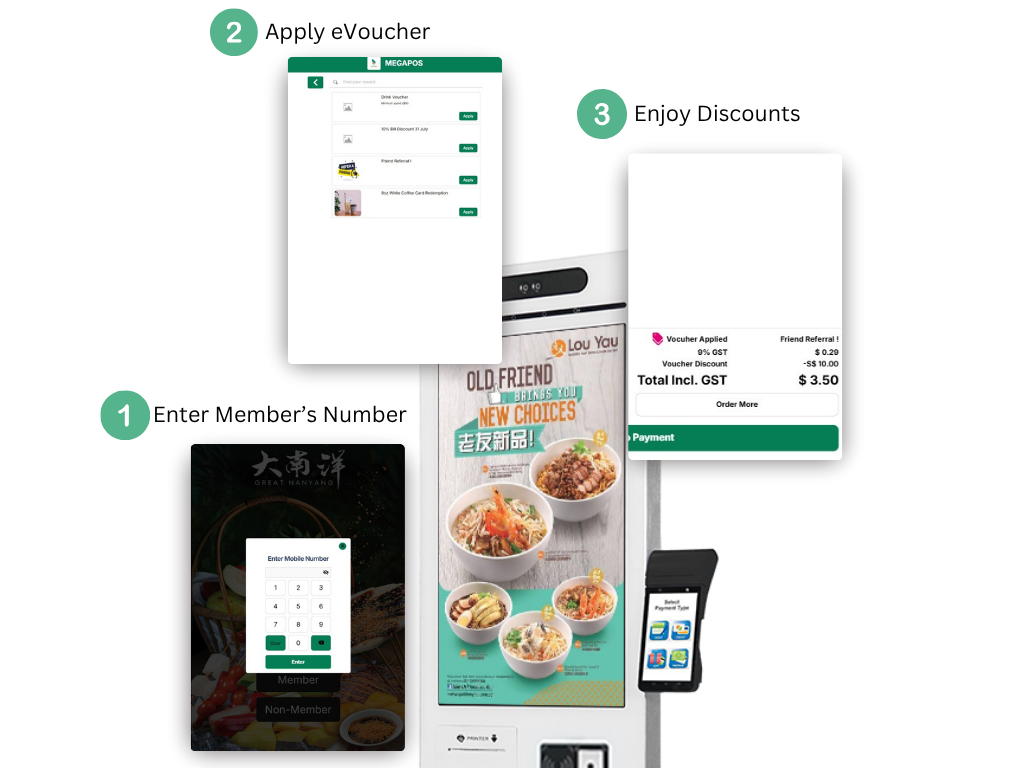
Ever gave up signing up for membership because the hassle too much? Now imagine this: You walk into your favorite F&B shop, place your order on a sleek, intuitive kiosk, simply enter your mobile number, and instantly redeem your available eVouchers. No fuss, no delays, just instant savings. Isn’t that the kind of seamless experience that would keep you coming back again and again? This is the experience you can offer your customers. Hassle-free, rewarding, and designed to build loyalty and repeat business. Want to bring this experience to your F&B outlet & build member loyalty? Click the button below to contact us!
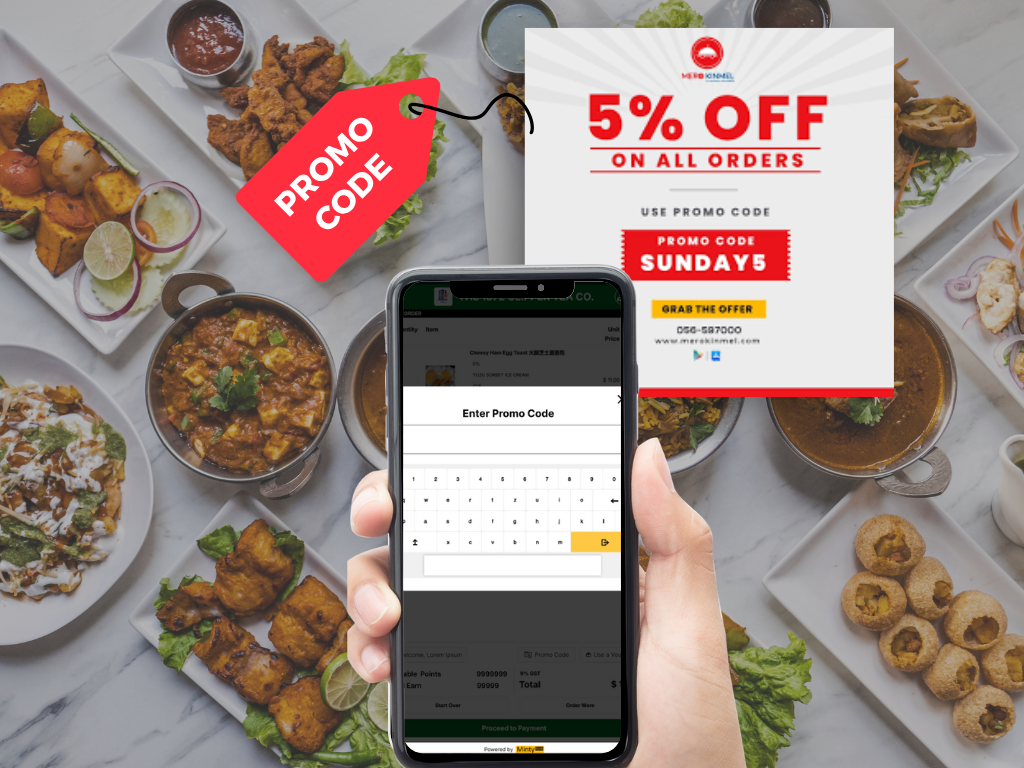
Is your F&B business facing stagnant or declining revenue? A CRM with promo code management helps you win new customers and keep them coming back. Here are some possibilities for your F&B business of having a CRM that manages promo codes: 🎯 Influencer campaigns – give each influencer a unique code to track real conversions. 📢 Social media ads – boost engagement with “$5 Off Today” codes to drive traffic. ⏰ Off-peak deals – fill empty seats with happy-hour or mid-afternoon promo codes. 🚚 Delivery promos – shift customers to order direct from you, saving platform fees. 🔁 Loyalty rewards – reward repeat diners with loyalty campaigns to drive repeat visits. With promo codes + CRM working together, your F&B business can see more customers, more repeat visits, and more profits. It’s not just about offering discounts. It’s about using smart tools that leverage these discounts to generate more profits for your F&B business.

The F&B landscape in Singapore is one of the toughest in Asia. With rental costs climbing, manpower shortages, and endless competition, café and restaurant owners need smarter ways to stay ahead. One tool that’s simple, effective, and affordable? Promo codes. Promo codes aren’t just about slashing prices. Used strategically, they help you attract customers, build loyalty, boost sales during quiet hours, and even measure marketing success. Here’s how you can put promo codes to work for your outlet. Attract New Customers with Welcome Offers Customers love deals, and nothing nudges a first-time diner more than a welcome discount. Example: “WELCOME20 – Get 20% Off Your First Visit.” Benefit: This lowers the barrier of entry and encourages people to try your food. For new F&B startups, this is one of the fastest ways to build awareness and trial, especially when combined with social media ads. Turn One-Time Visitors into Regulars Promo codes linked to repeat visits create a habit loop. By rewarding diners who come back, you encourage long-term loyalty. Example: “LOYALTY10 – Get $10 Off Your 3rd Visit.” Benefit: Keeps customers engaged, driving higher lifetime value. Pair this with CRM integration to personalize rewards. For instance, give frequent diners extra perks on birthdays or anniversaries. Keep Seats Full During Off-Peak Hours Every F&B outlet has dead hours. Why let tables sit empty when promo codes can fill them? Example: “TEATIME15 – 15% Off Between 3–5 PM.” Benefit: Smooths out demand across the day, improving overall profitability. This helps maximize your rental dollars — since you’re paying for the space 24/7, why not make it work harder for you? Strengthen Delivery & Online Orders Online orders are now a must-have revenue stream. Promo codes can help shift traffic away from costly delivery platforms and onto your own channels. Example: “DIRECT5 – Save $5 When Ordering from Our Website.” Benefit: Customers enjoy savings, while you avoid high commissions. When linked with your POS, these orders integrate seamlessly into your operations, improving efficiency. Track Campaign Effectiveness with Ease Traditional promotions are hard to measure. Promo codes solve this by being fully trackable. Benefit: You’ll know which codes drove traffic, which boosted sales, and which platforms brought in customers. Impact: Marketing decisions become data-driven, reducing wasted spend. For small outlets with limited budgets, this ensures you invest only in what works. Amplify Reach with Influencer Partnerships Food influencers are powerful in Singapore’s dining scene. Promo codes make influencer campaigns more effective by giving them something tangible to share with their followers. Example: “Use Code ALEXEATS for 10% Off” shared by an Instagram food blogger. Benefit: Increases trust and traceability. You’ll know exactly how many diners came because of that influencer. This makes influencer marketing less about vanity metrics and more about measurable sales. Final Thoughts: Smarter Marketing with Promo Codes Promo codes are no longer just a gimmick. For F&B businesses, they are a practical, data-driven way to boost customer traffic, encourage repeat visits, and measure ROI. With the right F&B POS system , managing promo codes is seamless — from creating campaigns to tracking results across outlets. In a competitive market like Singapore, promo codes can give your business the edge it needs. If you are interested in getting a CRM to manage your promo codes, a POS systems, QR ordering, online ordering, self ordering kiosks, click here to enquire more.
